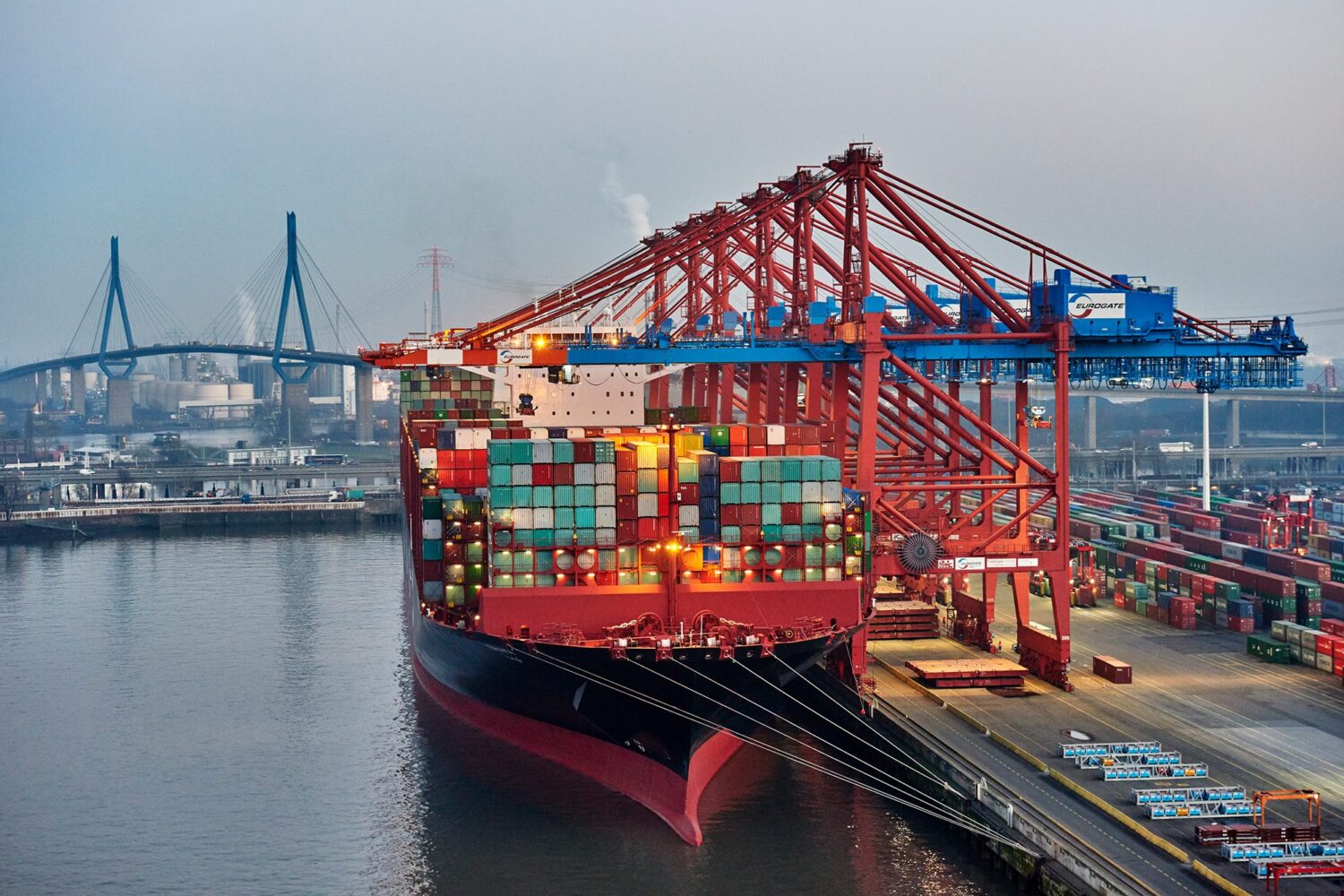The rumor has been around for some time, but now CMA CGM and Eurokai have confirmed the deal. The French shipping company is taking over 20% of the Eurogate terminal.
Following new indications that the French shipping company CMA CGM was investing in Eurogate Container Terminal Hamburg (CTH) at the beginning of the week, the shipping company has now confirmed the investment. CTH will be managed as a joint venture between Hamburg-based Eurokai and Bremen-based BLG; Eurokai also confirmed the deal.
In future, CMA CGM will hold a minority stake of 20% in the terminal at the Port of Waltershof via its subsidiary CMA Terminals. As part of the agreement, investment commitments have also been made with regard to the planned “western expansion” of the terminal. This envisages expanding Eurogate by 38 hectares in the coming years. The turning circle for container ships is to be increased from 480 to 600 m, and throughput is to increase from the current 4 million TEU to 6 million TEU per year. Cost of the expansion: around €2 billion.
“If the transaction is completed, which would take place in the first half of 2026, this would likely have a significant effect on Eurokai’s net profit for the 2026 financial year in accordance with the German Commercial Code (HGB) as well as on the consolidated net profit for the year in accordance with IFRS,” Eurokai states. “In addition, the envisaged stronger customer loyalty of CMA and CMAT as a strong partner with a high container handling volume as well as the investment commitments promised would significantly support the financing of the planned western expansion.”
Cosco and MSC already own shares in the port
With CMA CGM, another major liner shipping company has acquired a stake in the Port of Hamburg. The Chinese state shipping company Cosco and the Mediterranean Shipping Company (MSC) have also concluded agreements – both deals were preceded by months of disputes.
Cosco has held a 24.9% stake in Container Terminal Tollerort (CTT) since 2023. At the time, the German government decided to release a minority stake, even though the terminal had been classified as critical infrastructure. Hamburger Hafen und Logistik AG (HHLA), which operates the terminal, has since been developing CTT into a “preferred transshipment point” for the long-standing customer. Cosco had originally demanded a 35% stake.
The entry of the Swiss MSC made similar waves – not at an individual terminal, but at HHLA itself. The City of Hamburg still holds 50.1% of the shares in the port operator, with MSC holding 49.9%. Prior to the purchase by the world’s largest container shipping company, there was massive criticism from trade unions and the opposition, and the final decision was delayed last year, even beyond the summer break. MSC plans to significantly increase the container volume at the HHLA terminals: an annual minimum volume of 1 million TEU is planned from 2031. The shipping company will also set up a port headquarters in HafenCity.
The partners – MSC, Cosco and soon CMA CGM – will be granted preferential rights via so-called “dedicated terminals”. The ports thus secure basic capacity utilization by the shipping company; however, critics note that this places them in a position of economic dependency. In Hamburg, the development is relatively new; the Hanseatic city refused to sell minority shareholdings for a long time – but sometimes had to accept handling losses as a result.
Elsewhere, dedicated terminals have long been part of the port structure. For example, the shipping company Hapag-Lloyd holds a 30% share in Container Terminal Wilhelmshaven (CTW) and 50% in Rail Terminal Wilhelmshaven (RTW), while the remaining shares are held by Eurogate. The NTB terminal in Bremerhaven is operated on a pro rata basis by the Danish shipping company Maersk and Eurogate, while the MSC terminal is operated by Eurogate and MSC.













